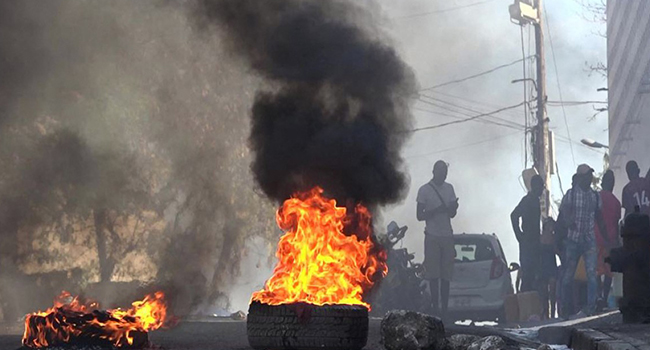In a shocking escalation of violence, gangs rampaged through the upmarket neighborhoods in the Haitian capital of Port-au-Prince, leaving at least a dozen people dead and forcing residents to flee their homes.
Early this week, gunmen looted homes and sowed chaos, prompting desperate pleas from residents for police intervention. The attacks come despite Prime Minister Ariel Henry’s recent promise to resign once a transitional presidential council is established – a move demanded by the gangs. This political turmoil adds to the complexity of the situation, as the country already grapples with significant challenges, including a major power outage caused by the destruction of four electricity substations by unknown assailants.
The deployment of a United Nations-backed Kenyan police force to combat the gangs has been delayed, with Kenya stating it will wait until the transitional council has been set up. Meanwhile, the International Organization for Migration (IOM) reports that nearly 17,000 people have fled the capital between March 8-14, seeking refuge from the violence.
The United Nations and other international organizations are struggling to deliver humanitarian aid and secure essential supplies amid the chaos. UNICEF reported the looting of a container with vital health supplies, highlighting the dire situation for the city’s most vulnerable populations.
The violence has not only led to a humanitarian crisis but also exacerbated the already dire economic conditions in Port-au-Prince. A gasoline shortage has hit the city, with gangs blocking roads and port infrastructure, making it nearly impossible for fuel distributors to operate normally. This has left many residents and public transportation drivers in a precarious situation, struggling to find fuel and make a living.
As Haiti faces this complex crisis, the international community and Haitian leaders are under pressure to find a solution that can restore order and pave the way for a peaceful and stable future. The recent violence underscores the urgent need for a tailored approach to address the country’s longstanding issues of governance, security and humanitarian needs.
